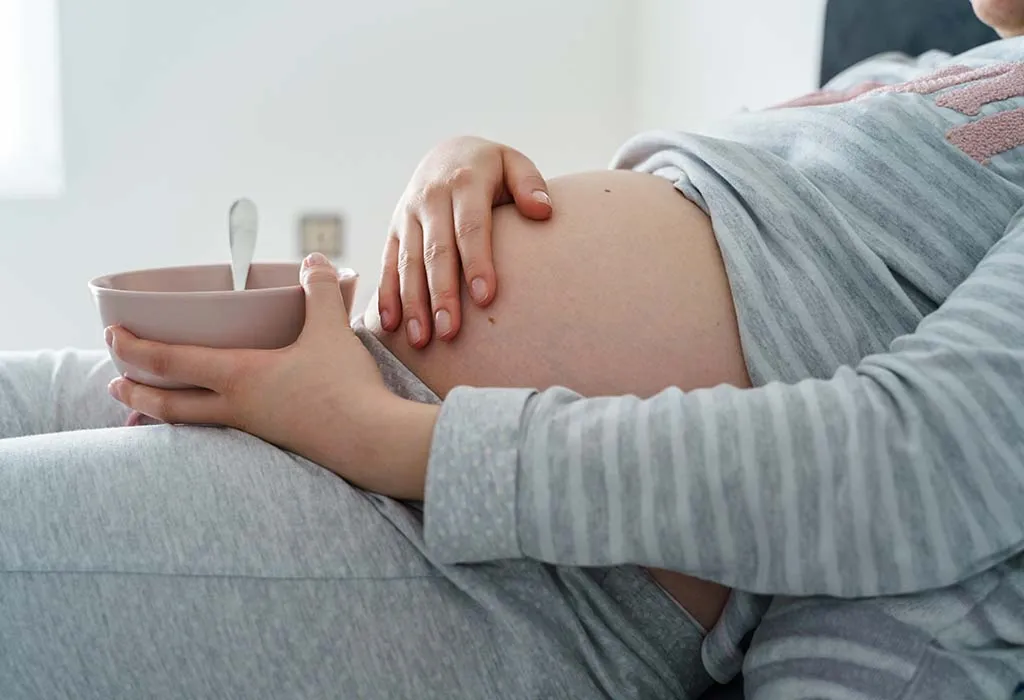Can Pregnant Women Eat Clam Chowder? Safety Insights

Pregnant women can eat clam chowder, but they should ensure it is made from cooked clams and avoid raw seafood. It’s important to check for freshness and avoid high-mercury fish.
Clam chowder is a popular dish made primarily with clams, potatoes, and cream. Many pregnant women crave comfort foods, making chowder an appealing choice. However, it’s essential to prioritize safety during pregnancy. Raw or undercooked seafood can harbor harmful bacteria and parasites.
Pregnant women should also be cautious about mercury levels in certain fish. Choosing a reputable restaurant or preparing homemade clam chowder can help ensure the dish is safe. Pregnant women can enjoy this creamy soup with the right precautions, making it a delicious and satisfying option during pregnancy.

Credit: www.pinterest.com
Seafood And Pregnancy: A Delicate Balance
Pregnancy brings many dietary considerations. Seafood can be nutritious but may also pose risks. Clam chowder, a popular dish, raises questions for expectant mothers. Understanding its benefits and concerns is essential for healthy choices.
Nutritional Benefits For Expectant Mothers
Seafood, including clam chowder, offers valuable nutrients. These nutrients support both mother and baby’s health. Key benefits include:
- Omega-3 Fatty Acids: Important for brain development.
- Protein: Supports tissue growth and repair.
- Vitamins and Minerals: Rich in essential nutrients like iron and zinc.
Eating clam chowder can contribute to a balanced diet. It provides a tasty way to consume seafood. Just ensure it’s cooked properly to eliminate harmful bacteria.
Common Concerns With Seafood Consumption
Not all seafood is safe during pregnancy. Some types contain high levels of mercury. Mercury can harm fetal development. Here are common concerns:
| Type of Seafood | Mercury Level | Advice |
|---|---|---|
| Clams | Low | Safe in moderation |
| Shark | High | Avoid completely |
| Salmon | Medium | Consume in moderation |
Cooking seafood thoroughly is vital. Raw or undercooked seafood may carry risks. Always choose reputable sources for seafood. Stay informed about safe options for pregnancy.

Credit: www.pinterest.com
Clam Chowder Deep Dive: Ingredients And Preparation
Understanding clam chowder is key for pregnant women. This delicious dish has a rich blend of flavors. Knowing the ingredients and how it’s prepared helps ensure safety.
What Goes Into A Bowl Of Clam Chowder?
Clam chowder typically includes:
- Clams: Fresh or canned, rich in nutrients.
- Potatoes: Adds heartiness and texture.
- Onions: Enhances flavor.
- Celery: Adds crunch.
- Butter: Provides richness.
- Milk or Cream: Creates a creamy consistency.
- Seasonings: Salt, pepper, and herbs for flavor.
Each ingredient plays a vital role. Clams are high in protein and iron. Potatoes give energy and fiber.
Homemade Vs. Store-bought: Assessing Safety
Choosing between homemade and store-bought clam chowder matters for safety.
| Factor | Homemade | Store-Bought |
|---|---|---|
| Control Over Ingredients | Full control | Limited control |
| Freshness | Fresh ingredients | May contain preservatives |
| Preparation | Customizable | Standardized |
| Allergens | Can avoid allergens | Check labels |
Homemade clam chowder allows for better ingredient control. Pregnant women can avoid allergens. Store-bought options may contain preservatives.
Always check labels for safety. Freshness and preparation methods matter greatly. Enjoying clam chowder can be safe with the right choices.
Eating Clam Chowder While Pregnant: Safety Guidelines
Pregnancy brings many dietary questions. One common query is about clam chowder. This creamy soup can be delicious, but safety is key. Pregnant women need to consider certain factors before indulging.
Mercury Levels In Clams
Mercury can harm developing babies. Some seafood has high mercury levels. Clams have lower mercury levels than larger fish.
| Type of Seafood | Mercury Level (ppm) |
|---|---|
| Clams | 0.1 – 0.3 |
| Tuna | 0.3 – 1.0 |
| Shark | 0.9 – 1.5 |
Clams are generally safe in moderation. Limit intake to avoid any risk. Always choose clams from safe sources.
Proper Cooking Techniques To Minimize Risk
Cooking clams properly is essential. Raw or undercooked shellfish can harbor harmful bacteria. Follow these guidelines:
- Cook thoroughly: Ensure clams are cooked to 145°F (63°C).
- Avoid raw clams: Skip sushi or raw clam dishes.
- Check for freshness: Use clams that are tightly closed.
Use these techniques to enjoy clam chowder safely. Stay informed and make safe choices.

Credit: medium.com
Alternatives And Precautions For Seafood Lovers
Many seafood lovers worry about what to eat during pregnancy. Clam chowder is popular, but it may pose risks. Pregnant women can enjoy seafood safely with some smart choices. This section explores safe seafood options and helpful tips.
Safe Seafood Alternatives During Pregnancy
Choosing safe seafood is crucial. Here are some great options:
| Seafood Type | Safety Level |
|---|---|
| Salmon | High in Omega-3; safe in moderation |
| Shrimp | Low in mercury; safe to eat |
| Canned Tuna | Choose light tuna; limit to 1-2 servings a week |
| Catfish | Low mercury levels; a safe choice |
| Trout | Farmed trout is safe and nutritious |
These options provide nutrition without the risks. Avoid high-mercury fish like shark and swordfish. Always check local advisories for fish caught in your area.
Tips For Enjoying Seafood Without The Worry
- Cook thoroughly: Ensure seafood reaches 145°F (63°C).
- Avoid raw seafood: Sushi and oysters can be risky.
- Limit servings: Keep seafood intake to 2-3 servings a week.
- Stay informed: Research safe fish types and local guidelines.
- Consult your doctor: Discuss dietary choices during pregnancy.
Following these tips helps seafood lovers enjoy their favorites safely. Staying informed makes a big difference. Choose wisely and enjoy your meals.
Frequently Asked Questions
Can Clam Chowder Harm Pregnant Women?
Clam chowder can pose risks due to potential mercury levels and bacteria, so moderation is key.
Is Canned Clam Chowder Safe During Pregnancy?
Canned clam chowder is generally safe if fully cooked and consumed in moderation, but check for added preservatives.
What Types Of Clam Chowder Are Safest?
Clear, broth-based chowders are safer compared to creamy ones, reducing the risk of foodborne illness.
How Can Pregnant Women Enjoy Clam Chowder Safely?
Ensure it’s made with fresh, cooked clams, and avoid raw or undercooked seafood to minimize health risks.
What Are The Benefits Of Clam Chowder For Pregnant Women?
Clam chowder can provide protein, omega-3 fatty acids, and essential nutrients, supporting a healthy pregnancy when consumed safely.
Conclusion
Pregnant women can enjoy clam chowder, but caution is essential. Ensure the clams are fully cooked and sourced from safe waters. Always check for freshness and avoid any potential allergens. By following these guidelines, you can savor this delicious dish while keeping your health and your baby’s well-being in mind.
